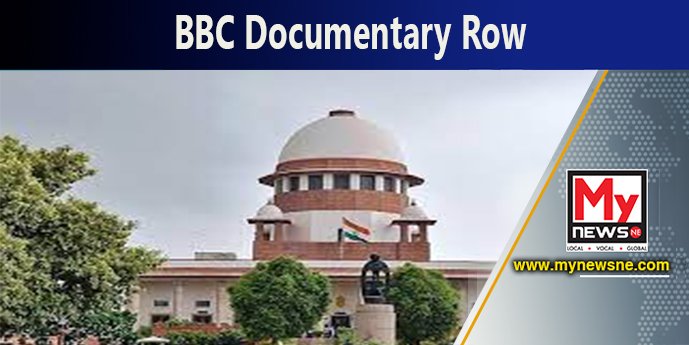SC issues notice to Centre on PILs challenging the censoring of BBC documentary
Guwahati: The Supreme Court on Friday issued notice to the Centre and requested a response in response to a request for an order prohibiting the Central government from censoring the BBC documentary about the 2002 Gujarat Riots.
The Central government was directed to submit its response within three weeks and a bench of Justices Sanjiv Khanna and MM Sundresh scheduled a hearing for April.
The bench declined to provide an interim ruling on the plea, stating that it could not do so without first hearing from the government and instead ordered it to present all relevant documents at the next hearing.
“We direct respondents to produce original records on the next date of hearing,” the bench stated in its order.
Mahua Moitra, an MP for the Trinamool Congress, was represented by prominent journalist N Ram, senior advocate CU Singh, and attorney Prashant Bhushan. They all testified before the bench that the IT Rules require the publication of emergency blocking orders within 48 hours.
According to Singh, the documentary was barred by the Center based on a secret order, and institutions are taking action against students for showing the documentary based on this secret order.
Justice Khanna said, “It is also a fact that people have been accessing those videos.”
Singh requested a quicker date for the case, but the judges turned down his plea.
The Supreme Court also served notice to the Center in a PIL filed by attorney ML Sharma against Central government directives to halt the documentary.
The PIL submitted by attorney Sharma also urged the supreme court to review parts I and II of the BBC programme and asked for punishment against those responsible for and participating in the Gujarat riots of 2002.
N Ram and other petitioners requested that all orders that directly or indirectly prevent internet access to the BBC documentary “India: The Modi Question” be quashed.
The Center’s decision to prohibit the documentary was described in their petition as “manifestly capricious” and “unconstitutional.”
Moreover, the petitioners asked Twitter to restore their tweets that contained links to the documentary but had been removed at the Center’s request.
The right to freedom of speech and expression guaranteed to citizens by Article 19(1)(a) of the Constitution also includes the “right to receive and disseminate information”, the plea stated.
Even if the authorities find the documentary’s substance and its reception/discussion objectionable, that is still no justification for restricting the petitioners’ right to free speech, the argument continued.
According to the reports, the Center provided instructions for censoring numerous YouTube videos and Twitter messages that shared links to the divisive BBC documentary on January 21.
Hindu Sena President Vishnu Gupta has also submitted a PIL to the Supreme Court asking for a total ban on the BBC documentary.
The PIL also asked the National Investigating Agency for guidance on how to launch an investigation into anti-India and anti-Indian government reportage, documentaries, and short films, including those starring its in-house journalists, in India, and how to deliver a report to the top court.

